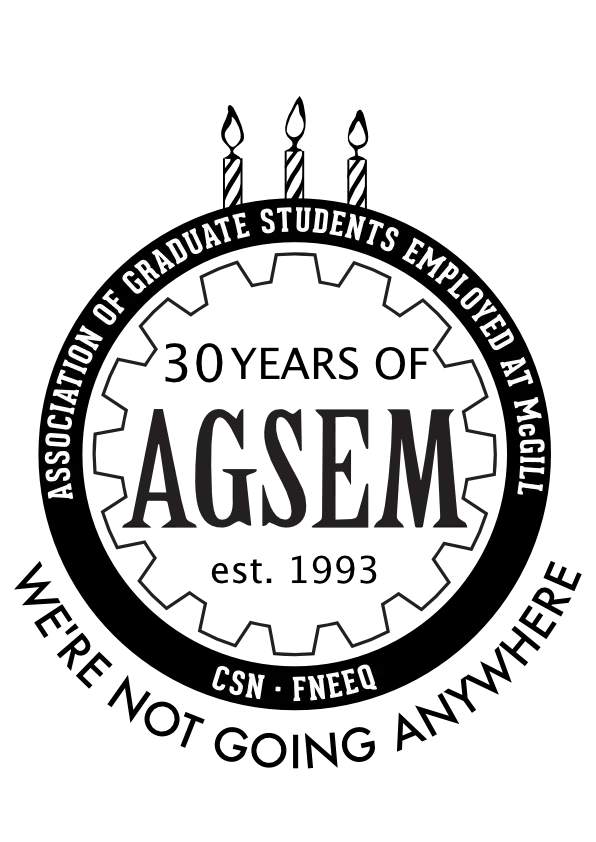Exhibit 5 - AGSEM in the Present Day: The Fight Continues
Location of physical exhibit: 5th floor of the Education Building, on the AGSEM bulletin board to the left when leaving the elevator (if you take the stairs it is to the right of the elevators).
During the 2010s, AGSEM succeeded in signing the second contract for invigilators (2015-2020) and two contracts for Teaching Assistants (2011-2014, 2014-2018). By then the union was established enough that it succeeded in winning these new contracts without the major strikes that had marred the 2000s. The decade ended with the union’s two units stronger than ever.

Photo of TAs picketing the Tomlinson Fieldhouse on a one-day TA strike (April 16, 2015).
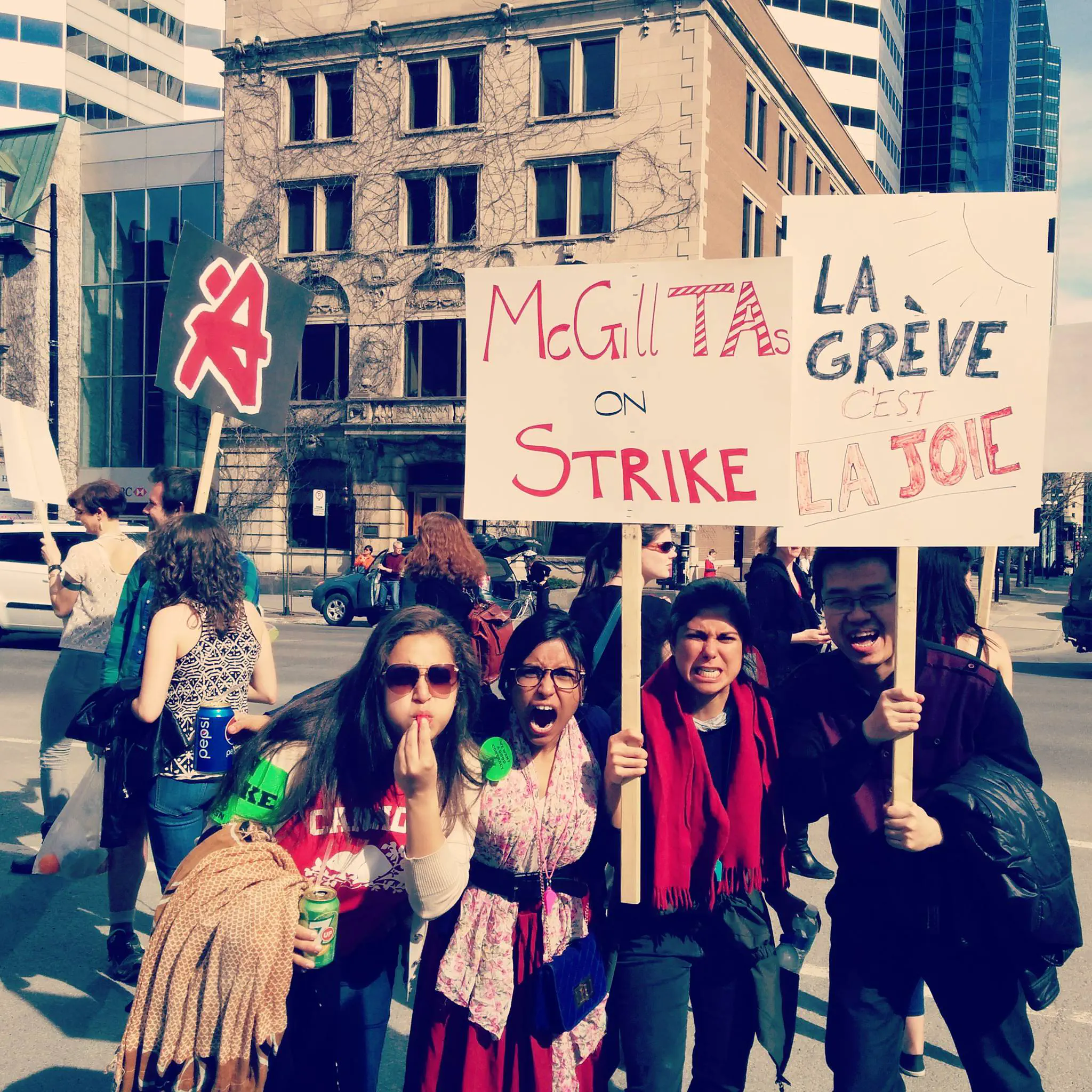
Photo of TAs picketing the Roddick Gates on a one-day TA strike (April 16, 2015).

Photo of Simon the dog in support of AGSEM TAs on their one-day strike (April 16, 2015).
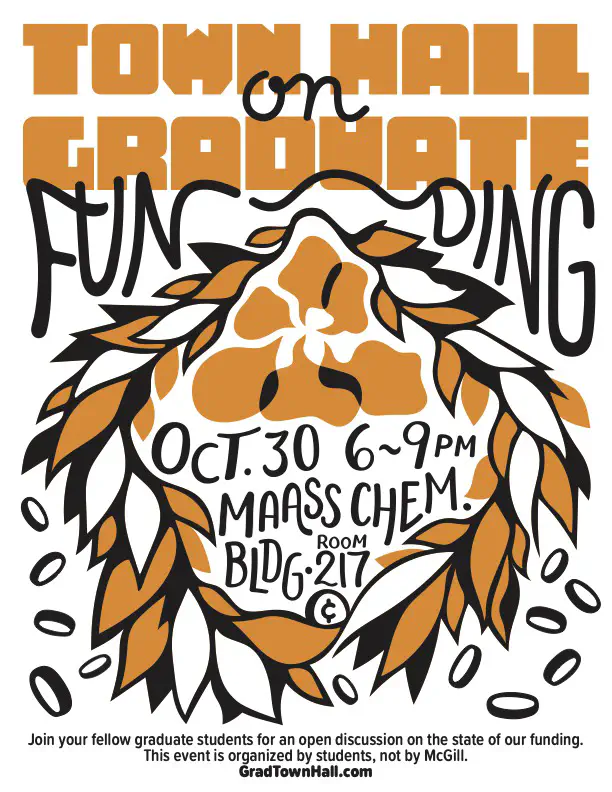
AGSEM Town Hall on Graduate Funding Poster (2019).
“I’m very happy to see [AGSEM] continuing. You know, to see it keep growing. And I think there are always going to be students who are drawn towards it. And so, yeah, it could be challenging, but it still serves a purpose. Unions matter. At the end of the day, that’s all the working people have. […] I don’t need to negotiate my pay […] So once you’re looking for a job, check a place that has unionized their standards. There is where we’re not sending emails on weekends in the middle of the night. No one expects you to answer. There are rules and the Collective Agreement governs that. So yeah, unions work, as well as the people who come to the meetings make it work.”
—Interview with Lerona Lewis, AGSEM President (2008-12).
The outbreak of the global pandemic in the winter of 2020 led to the closing of Canada’s universities, but thanks to the strong protections won in AGSEM’s first quarter-century, there were no mass layoffs of teaching assistants at McGill. Despite pandemic-related disruptions of the regular course of negotiations, the union succeeded in signing a new contract for TAs in early 2021, winning a significant pay raise and establishing new rules that prevent departments from clawing back TA raises in graduate funding packages. As of October 2023, Unit 1 is in the early phase of negotiations for a new collective agreement.
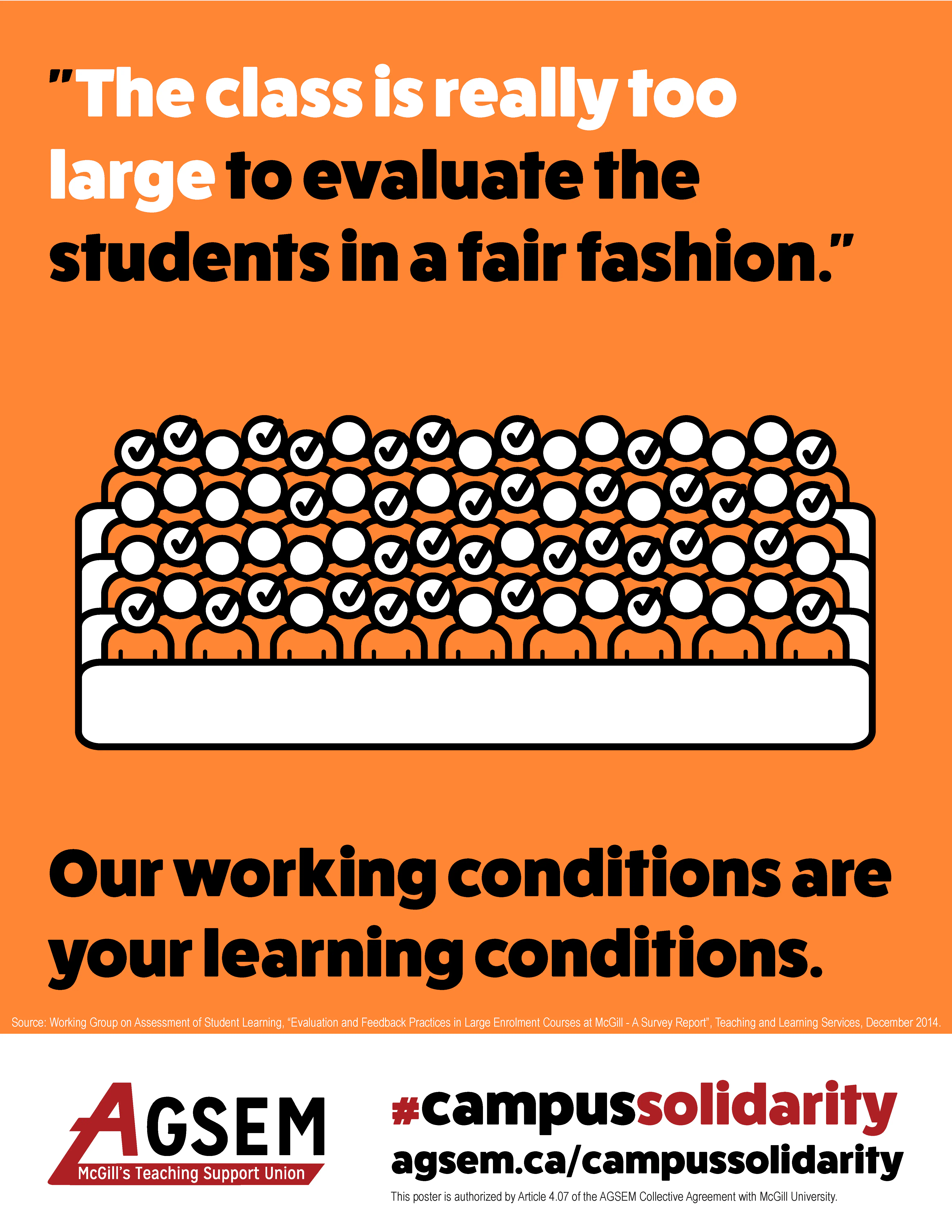
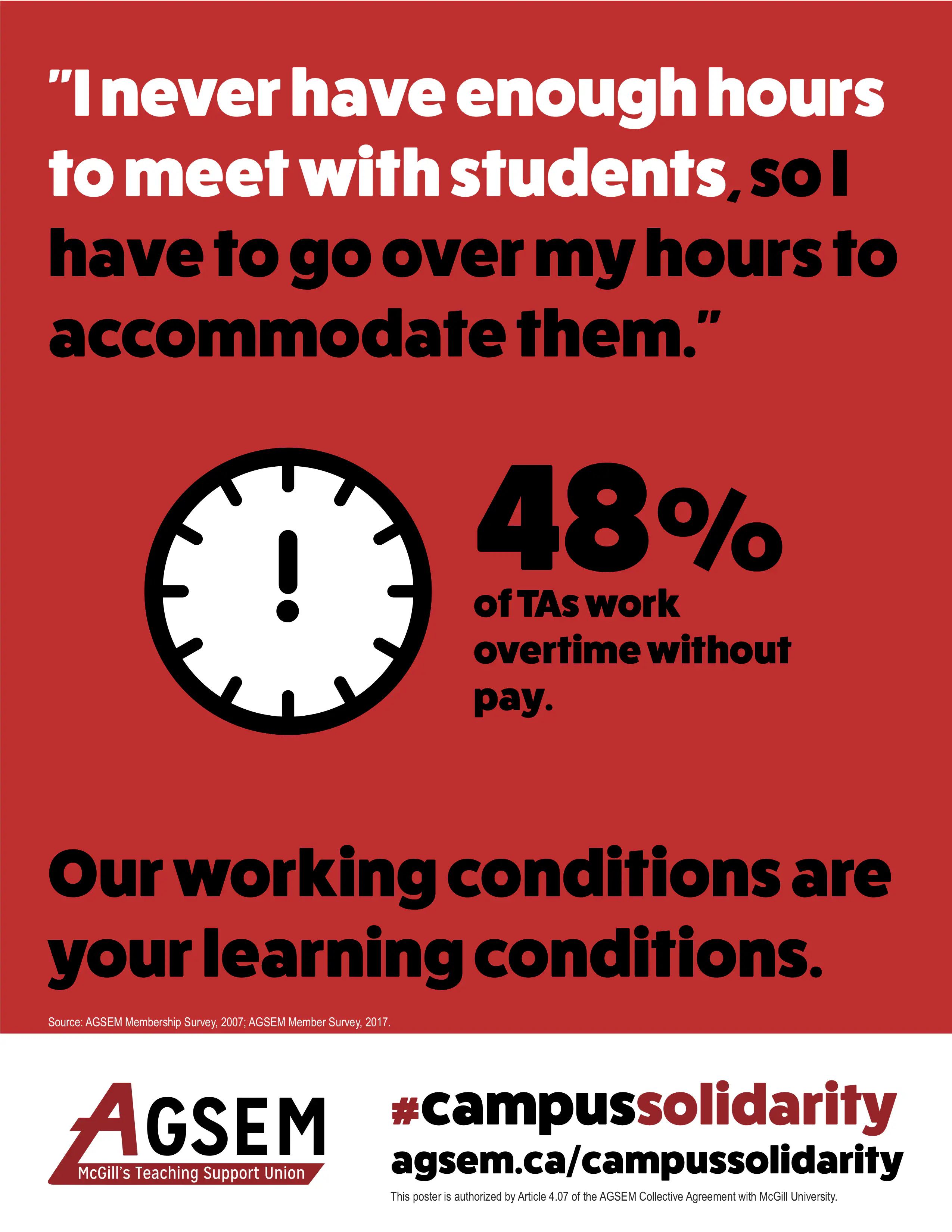
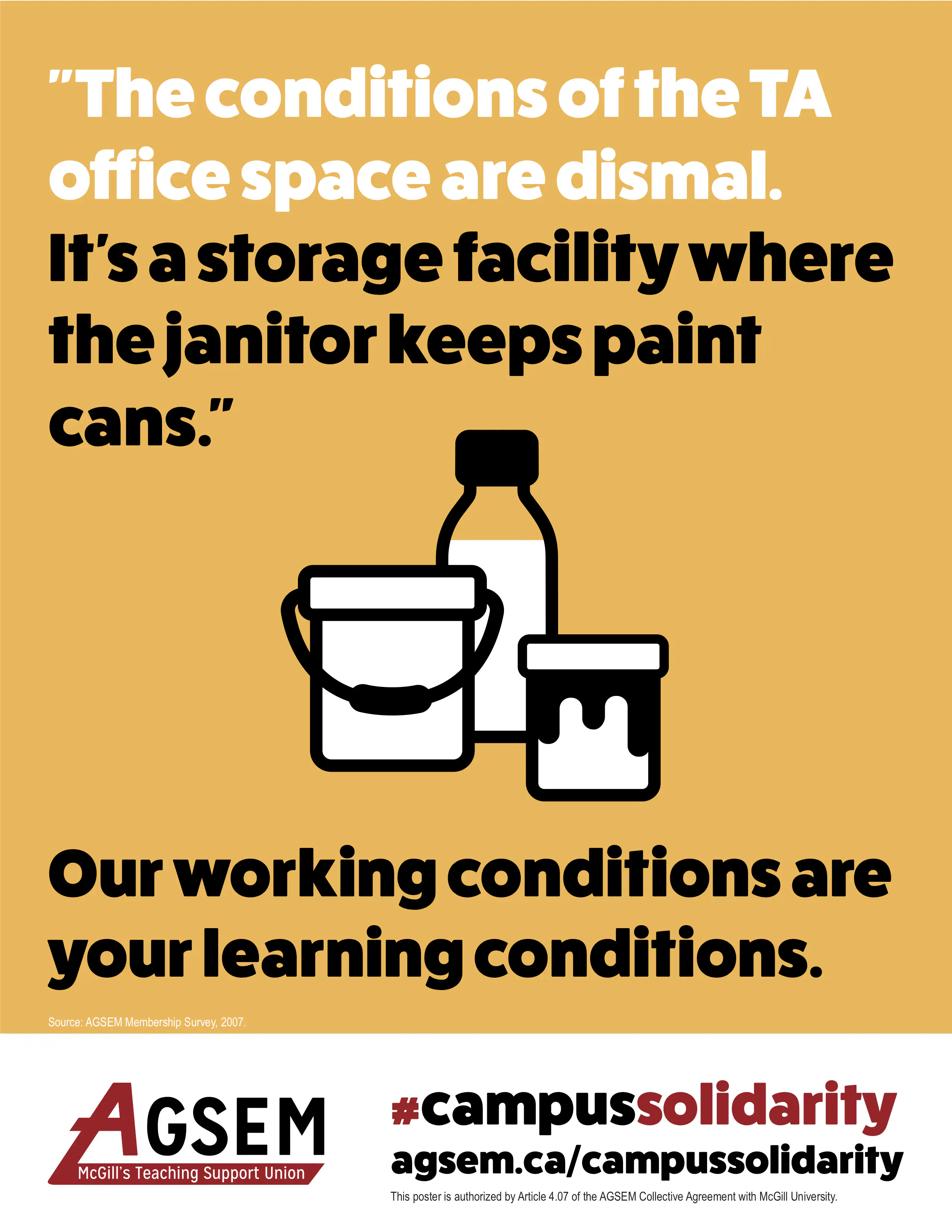
AGSEM TA Bargaining Posters (2019). The quotes are from the AGSEM Member Survey, 2017.
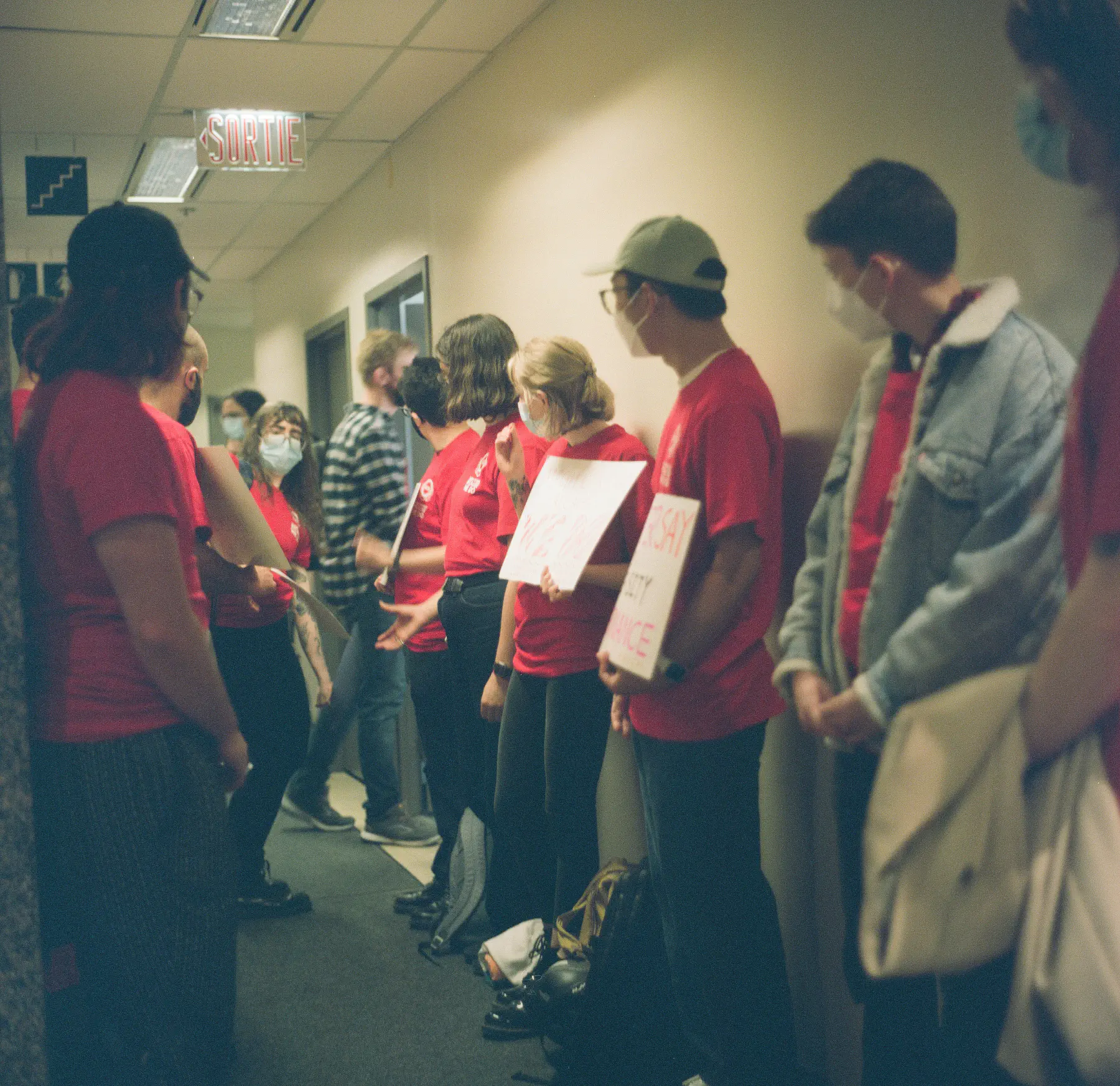
Photo of AGSEM members lining the hall with signs expressing support of a fair contract as McGill representatives and the Bargaining Committee enter the negotiation room. Photo: Riley Hannah Lewicki, @analog_girl_photos (September 21, 2023).
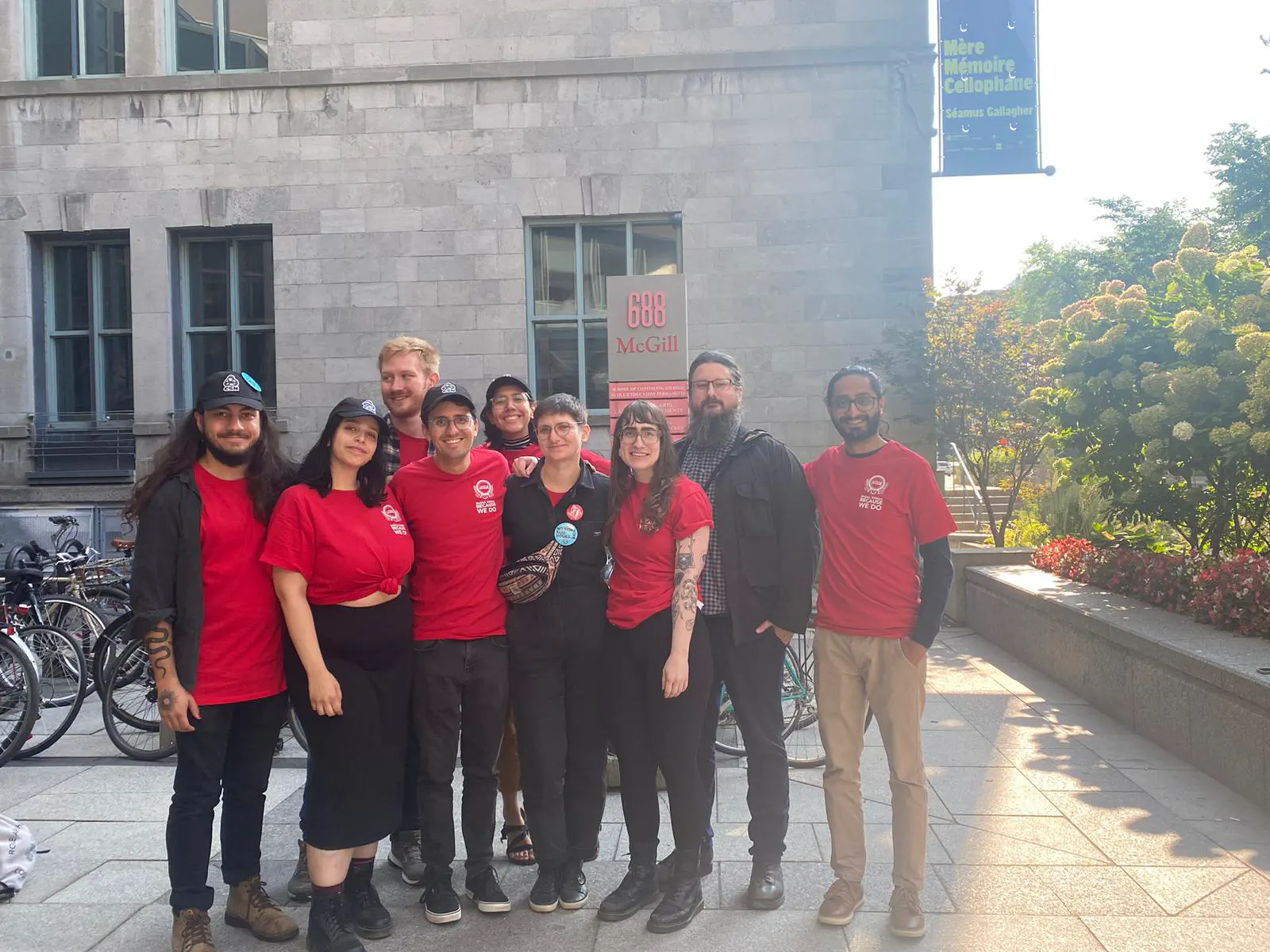
Photo of the TA Bargaining Committee and Bargaining Support Committee on the first day of TA negotiations (September 21, 2023).
Unfortunately, McGill’s treatment of invigilators in response to the pandemic was entirely different. The unit was collectively dismissed until in-person exams resumed in December 2021. Despite the challenges of remote negotiations for building collective power, AGSEM made significant gains in the invigilator contract, signed in May 2023, including a shortened probationary period, a paid indemnity for breaks that cannot be taken, a stronger grievance procedure, and a 26.2% raise over 2.5 years.
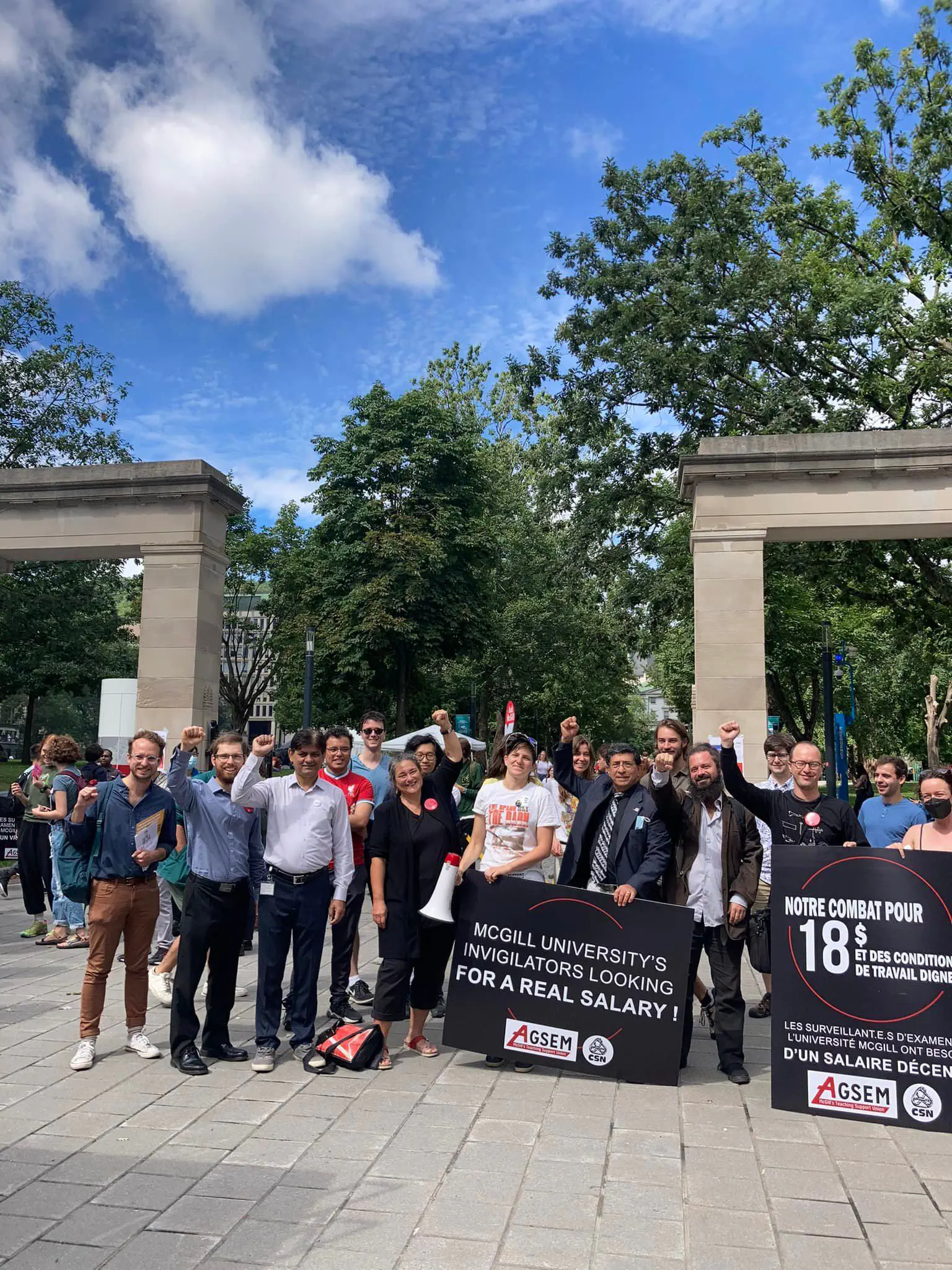
Photo of AGSEM organizers and rally in support of invigilator negotiations. After this rally, McGill returned to the negotiation table with a serious monetary offer, and an agreement between AGSEM and the employer was reached (September 1, 2022).

Photo of Dominique Daigneault, President of the Conseil central du Montréal métropolitain (CCMM-CSN), giving a speech at rally in support of invigilator negotiations, AGSEM President Mario Roy pictured behind (September 1, 2022).
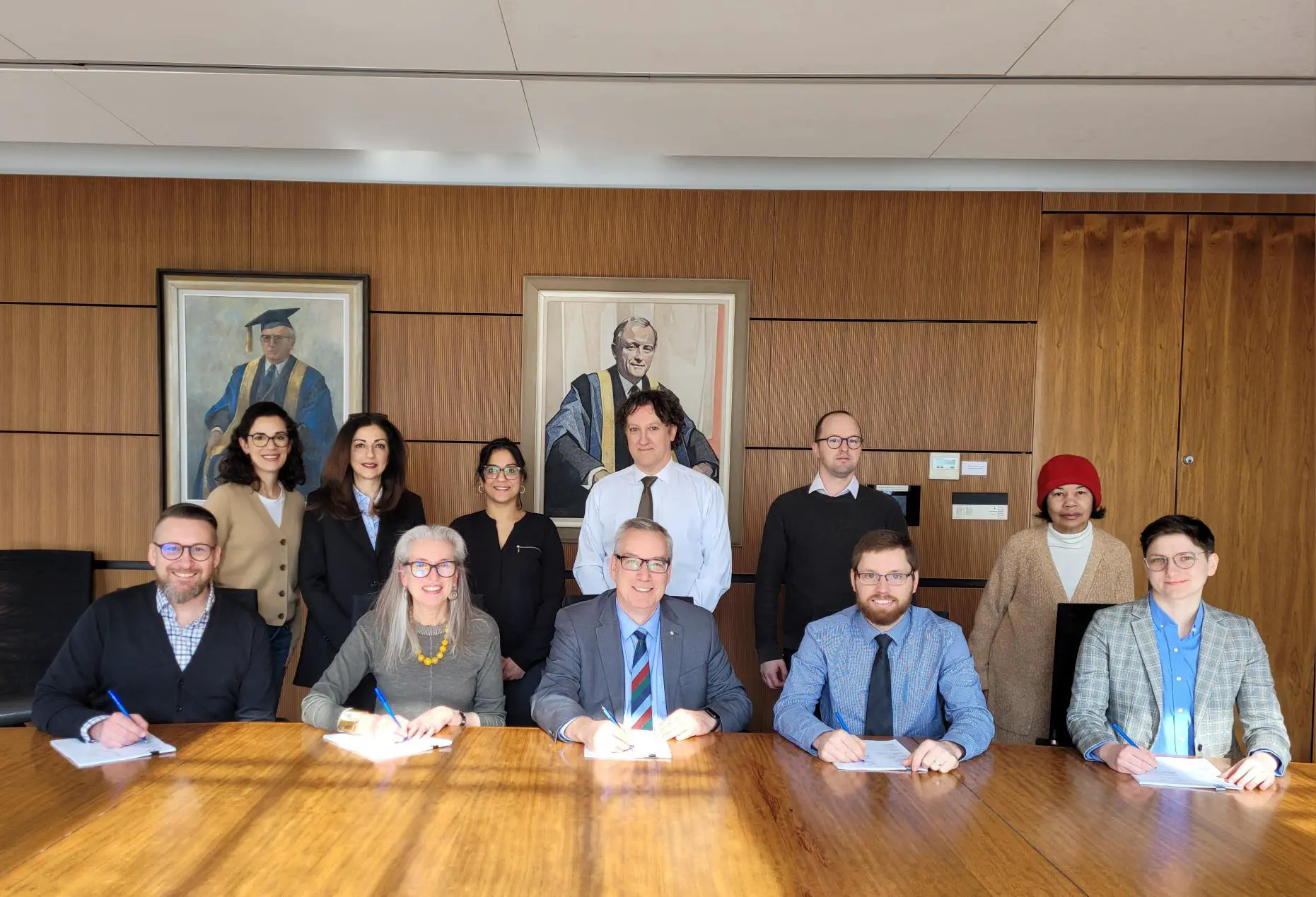
Photo of AGSEM President Mario Roy, Bargaining Committee members Kiersten van Vliet and Andrea Hazelwood (not pictured: Gokcan Sahin), and FNEEQ union advisor Sébastien Boisvert signing the new invigilator Collective Agreement along with representatives from McGill (March 31, 2023).
As in-person activities gradually resumed on campus in 2021 and 2022, AGSEM organizers directed their efforts towards improving the union’s visibility on campus and recreating a sense of community and solidarity among new and returning graduate workers. To meet this goal, AGSEM successfully organized three large rallies in the heart of downtown campus to mark the first and last day of classes (September 2022, April 2023, and August 2023).
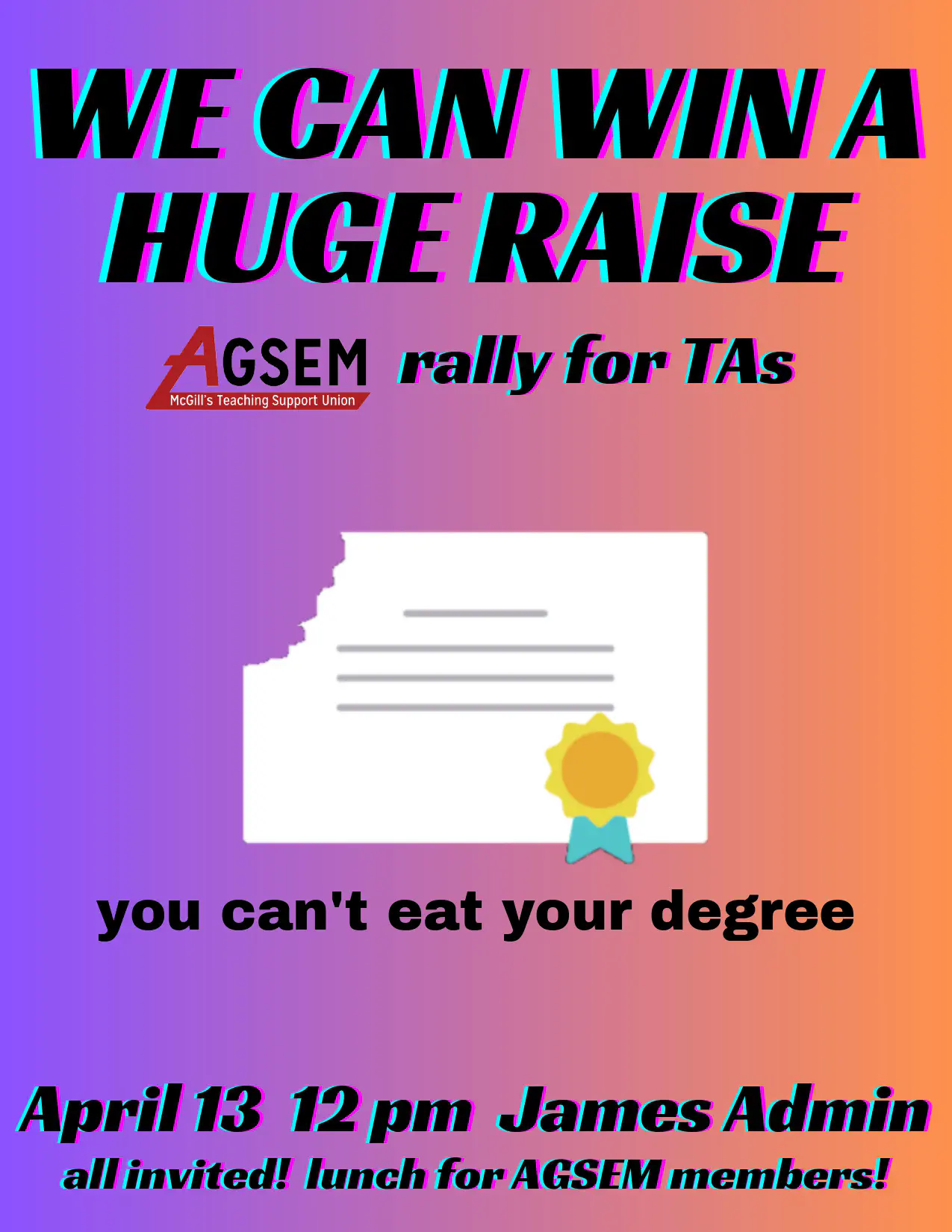

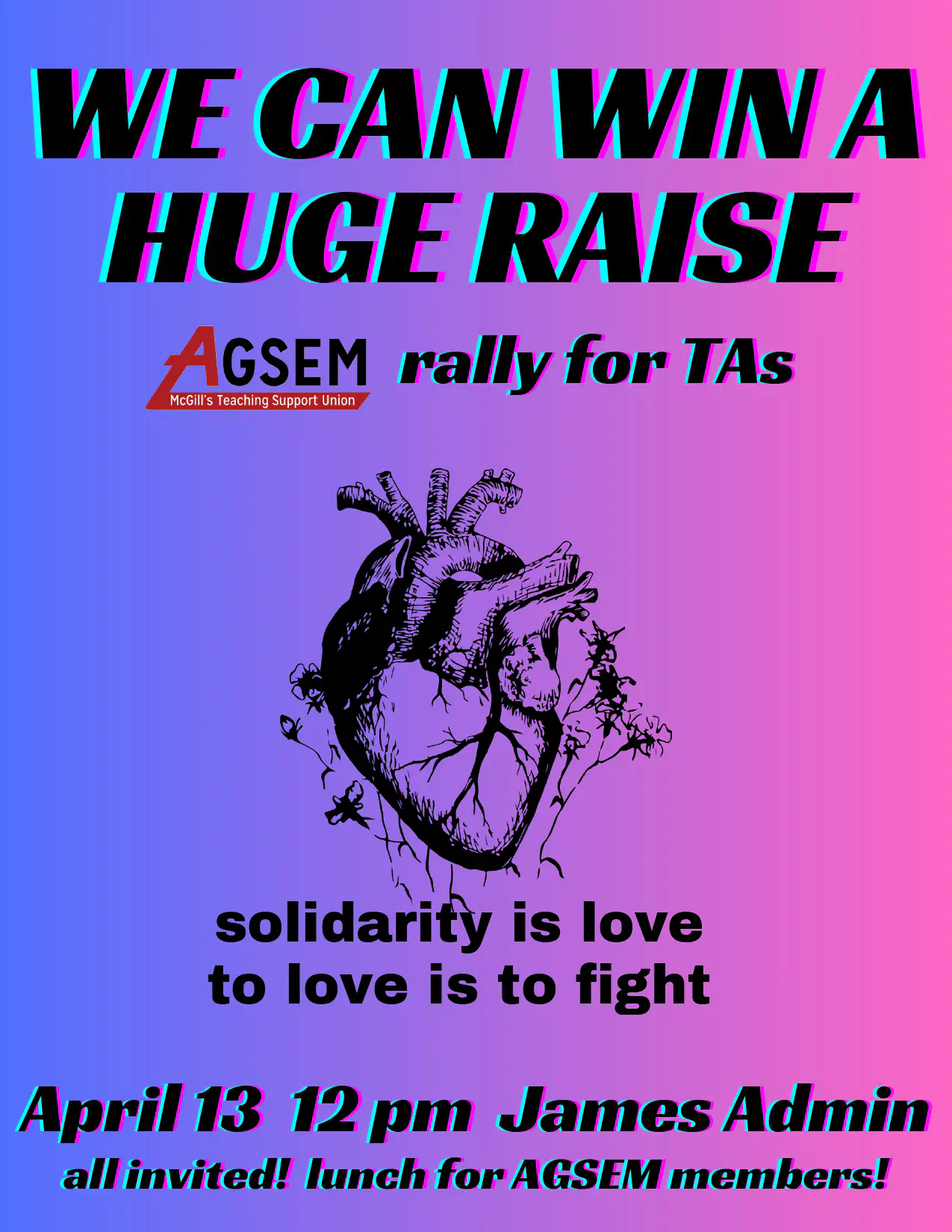
“We Can Win a Huge Raise,” AGSEM TA Rally Posters (2023).
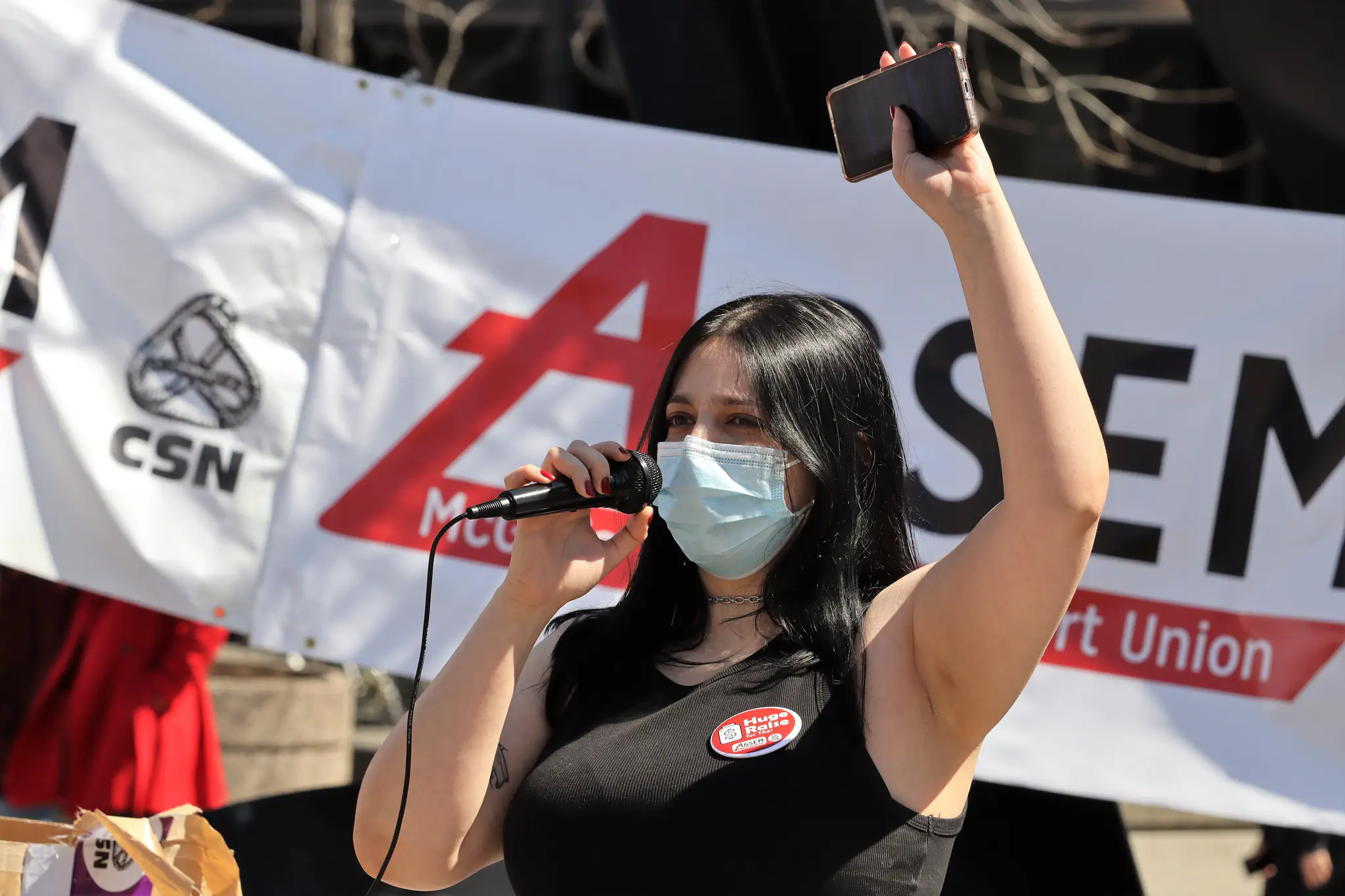
Photo of AGSEM Biology Delegate (and future Bargaining Committee member) Nada El Baba giving a speech on the rights of graduate student workers at the “We Can Win a Huge Raise: AGSEM Rally for TAs” rally (April 13, 2023).
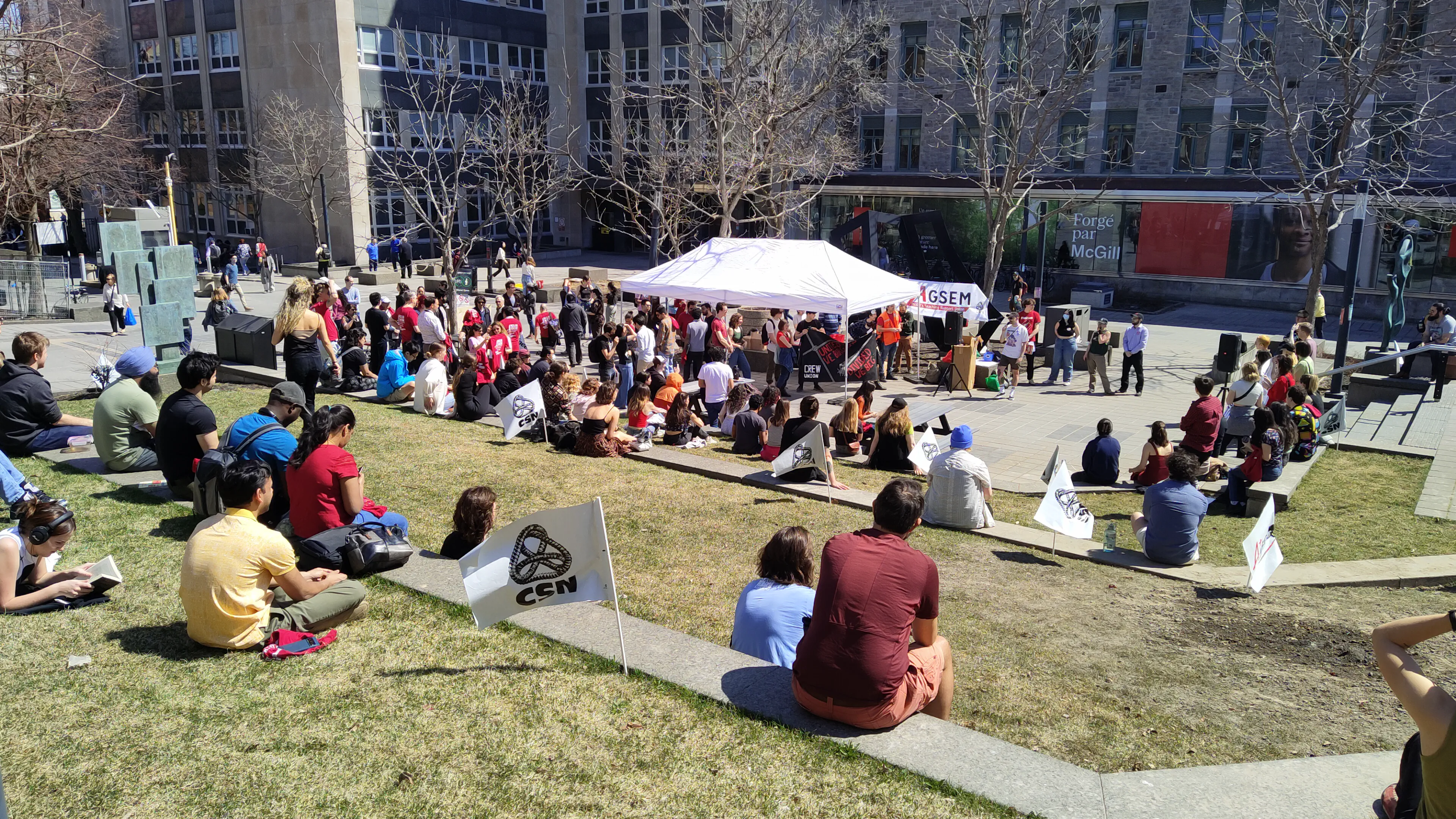
Photo of James Square at the “We Can Win a Huge Raise: AGSEM Rally for TAs” rally (April 13, 2023).
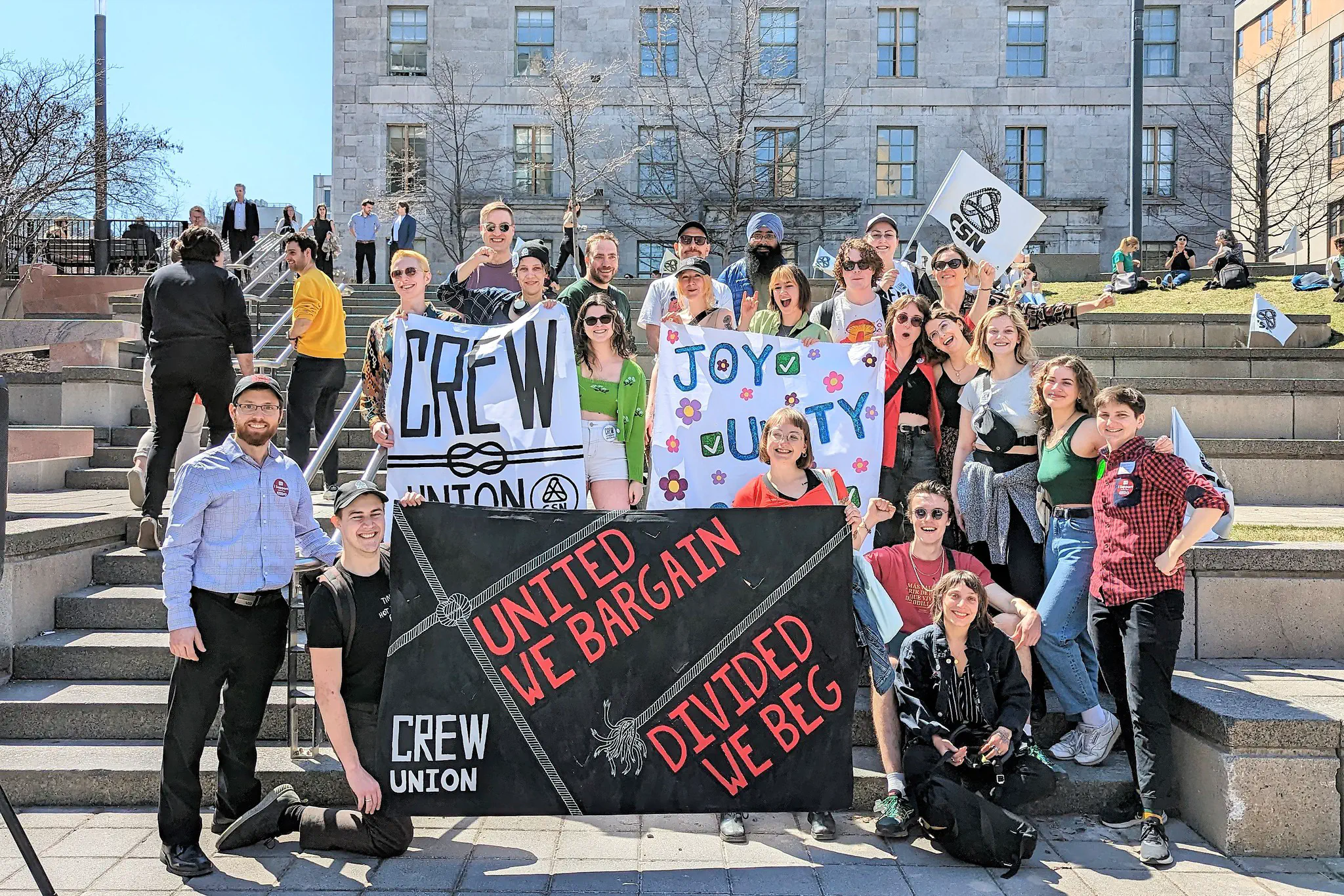
Photo of AGSEM President Mario Roy (far left) and Mobilization Officer Kiersten van Vliet (far right) pose with militants from the Concordia Research and Education Workers’ Union (CREW-CSN) at the “We Can Win a Huge Raise: AGSEM Rally for TAs” rally (April 13, 2023).
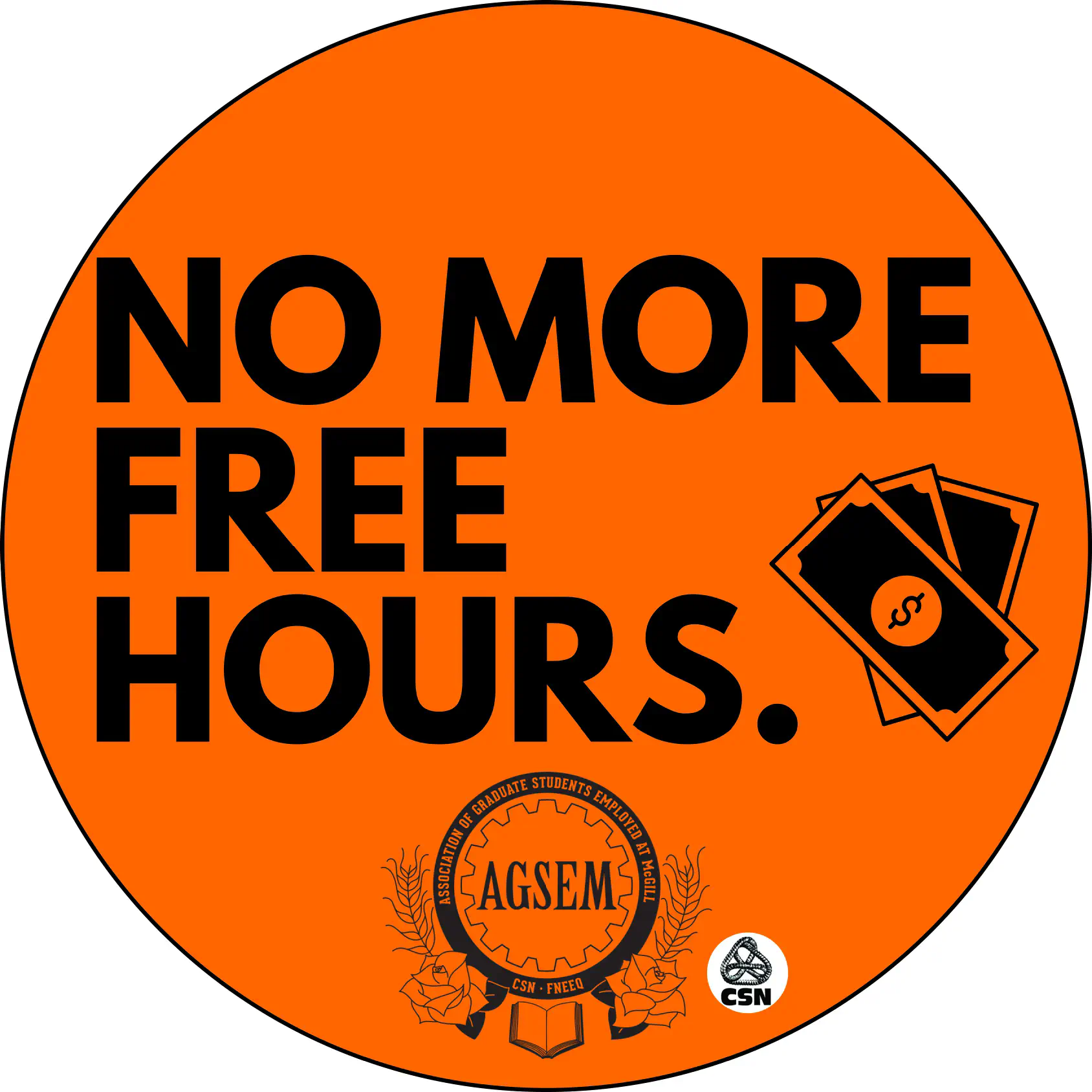

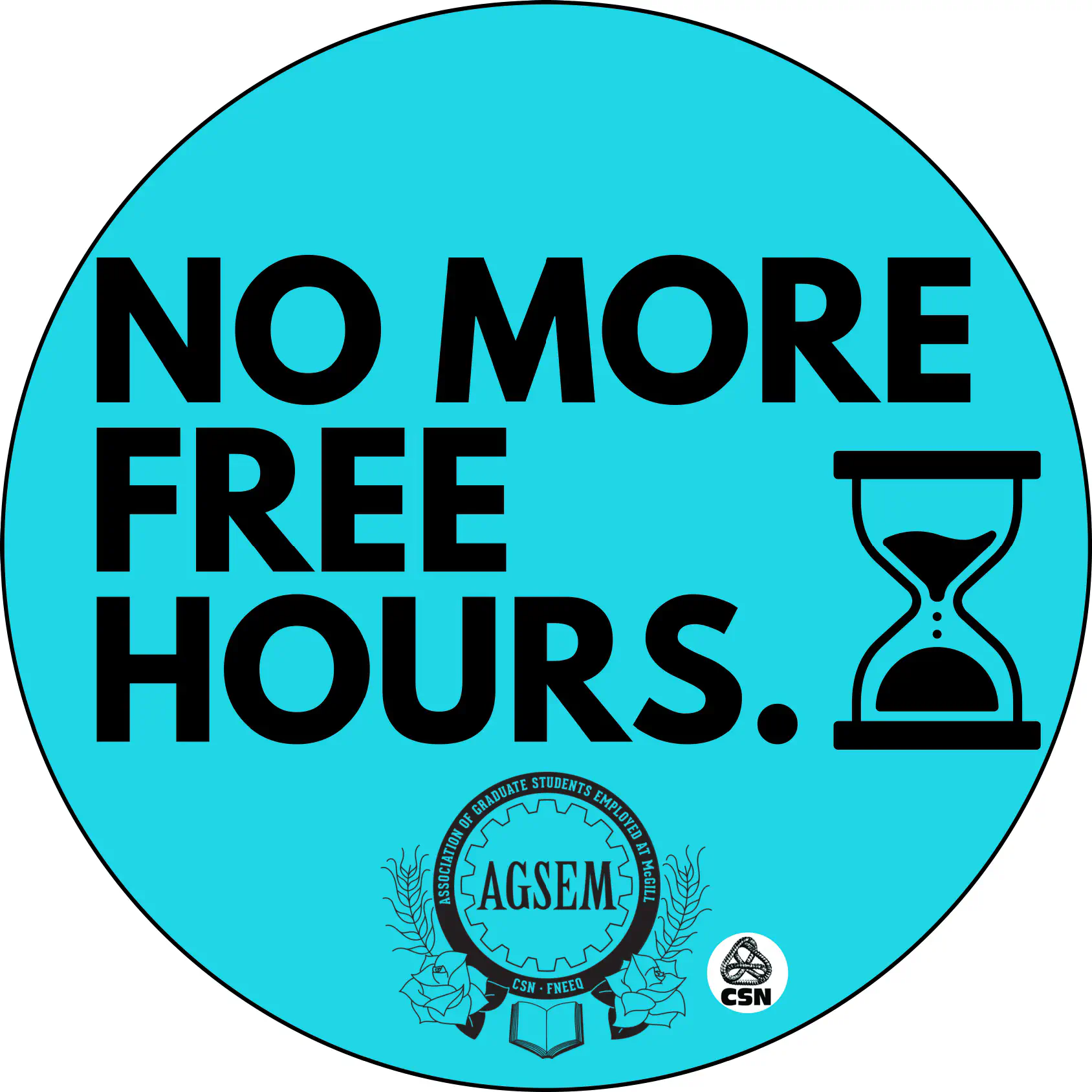
“No More Free Hours,” Posters and Buttons for the AGSEM Work to Rule Campaign (2023)
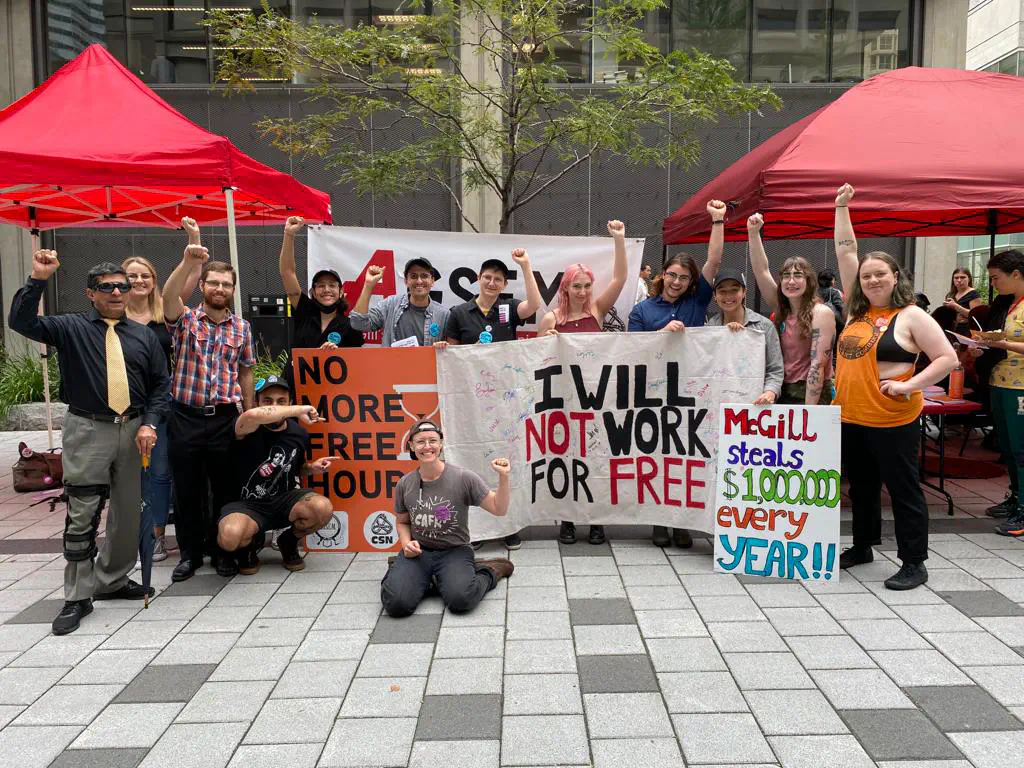
Photo of AGSEM organizers and Raad Jassim, president of the McGill Course Lecturers and Instructors Union (MCLIU) at the “First Day of School: Let’s Work to Rule” rally (August 30, 2023).

Photo of “What would you do with $430?” board where AGSEM members shared how they would spend $430, including buying groceries, paying rent, paying off debt, paying for therapy, adopting a pet, visiting family, and getting more tattoos at the “First Day of School: Let’s Work to Rule” rally (August 30, 2023).
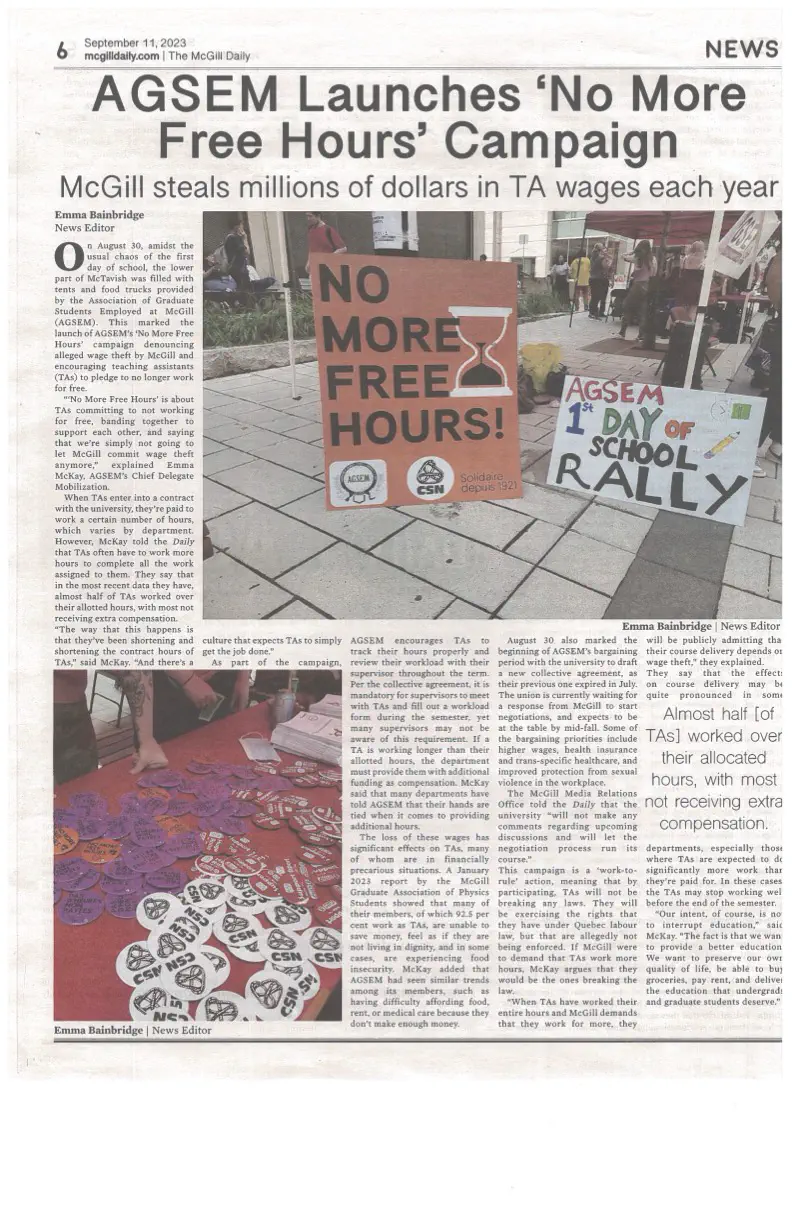
“AGSEM Launches ‘No More Free Hours’ Campaign,” The McGill Daily (11 September 2023), 6.
“The major issue back then was that in a lot of departments instead of hiring a TA and paying them according to the collective agreement, they were hiring a grader and paying them $10 or $12 an hour instead of the TA rates. It’s still the case at McGill, they are really good at subcontracting cheap labour.”
—Interview with Marc Paquette, Unionization Department Coordinator, Confédération des syndicats nationaux (CSN).
Unfortunately, to this day, many academic workers at McGill are yet to enjoy the benefit of a unionized workplace. While McGill University’s graduate TAs and invigilators have a union, hundreds of other academic casuals at McGill are doing similar—or even identical work—without any protections or benefits. Since 2003, AGSEM has had a longstanding mandate to unionize graders, undergraduate course assistants, and other non-unionized academic support workers. To this day, AGSEM continues to fight for the certification of these workers, with an ongoing legal battle with the employer.

Academic Workers Unionization Drive Flyer (2019-20).
“It is a question of how we sustain this momentum past the moment when we need high involvement. We need a high involvement now because we’re going into negotiation, of course. Maybe it is the nature of this organization: that it will have fluctuations. The union won’t always be the strongest it can be. Maybe there will be times when it has a shorter bench. But, if there are internal processes—a strong constitution, a strong policy manual, a strong transfer of knowledge—even in these lower moments where there is less activity—less on-the-ground action, less helping out with other struggles in addition to fighting our own—there will be moments when the organization can renew itself in the future.”
—Interview with Kiersten van Vliet, AGSEM President (2019-2020), Mobilization Officer (2018-19, 2022-24)

“Solidarity is love,” AGSEM Valentine’s Day Campaign Poster (2023).
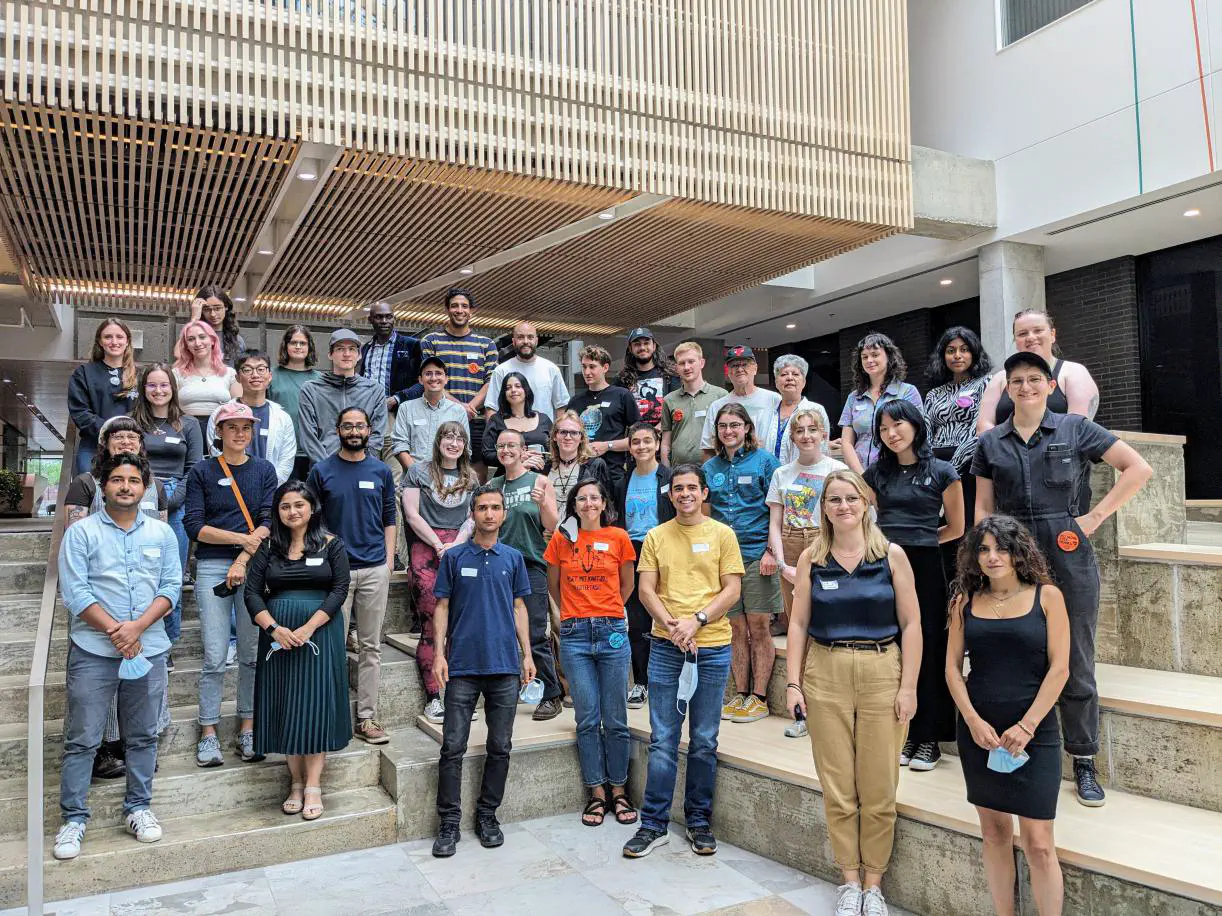
Photo of the AGSEM Delegates Council 2023-24 at a full-day organizer training held at the Confédération des syndicats nationaux (CSN) building in Montreal (August 27, 2023).
